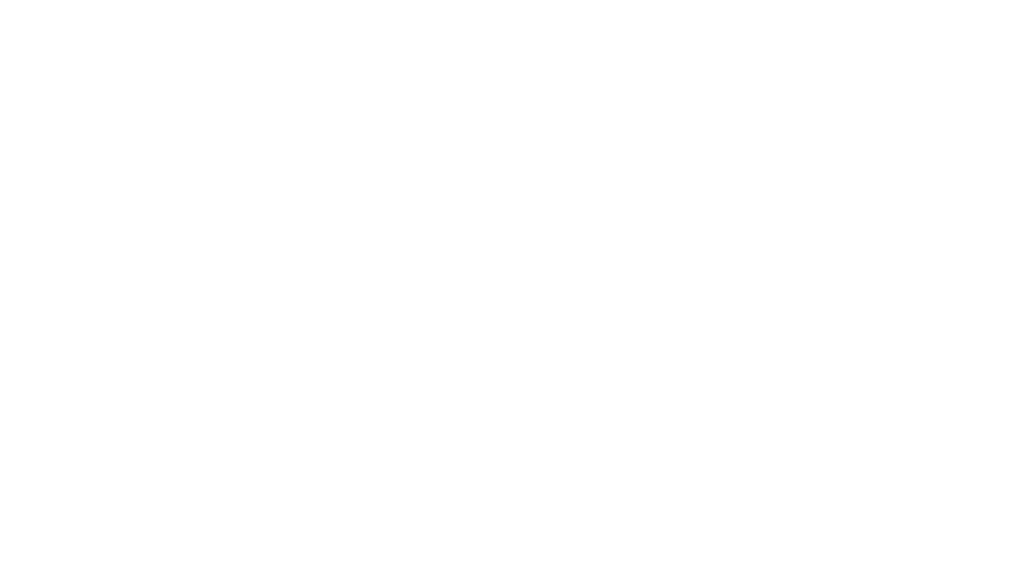How Becky Godden's murderer was caught, lost, and caught again
- Published
Taxi driver Christopher Halliwell is found guilty of murdering Becky Godden.
The murder case of Becky Godden was a strange one. Police knew who the killer was, where he was, and what he had done. But because of irregularities in detective work, Christopher Halliwell could have evaded justice for her death.
But Halliwell, 52, has now been found guilty of strangling the 20-year-old, and faces a second life sentence.
The story began in 2003, when taxi driver Halliwell abducted and murdered Miss Godden, who was working as a prostitute when she disappeared from Swindon in the new year.
Until 2011, no-one knew what had happened to the blonde sex worker. Also known as Becky Godden-Edwards, she had just vanished from the streets. But in March that year, another young woman went missing - Sian O'Callaghan.
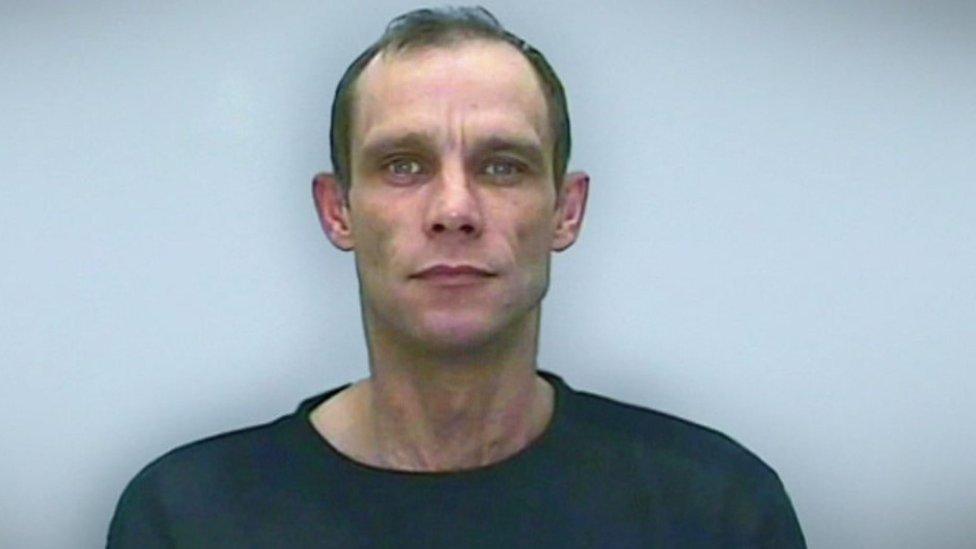
Christopher Halliwell was arrested for the murder of Sian O'Callaghan in March 2011
Miss O'Callaghan, a 22-year-old office administrator, was reported missing by her boyfriend. Halliwell had been cruising around Swindon looking for a victim. Miss O'Callaghan was in the wrong place at the wrong time.
As is often sadly the case, the disappearance of a woman who was not a sex worker captured the public's - and the media's - imagination in a way the disappearance of a prostitute did not.
Halliwell was arrested and admitted the crime. He also agreed to show police where he had hidden her body - at a remote beauty spot, close to the Uffington White Horse in Oxfordshire.
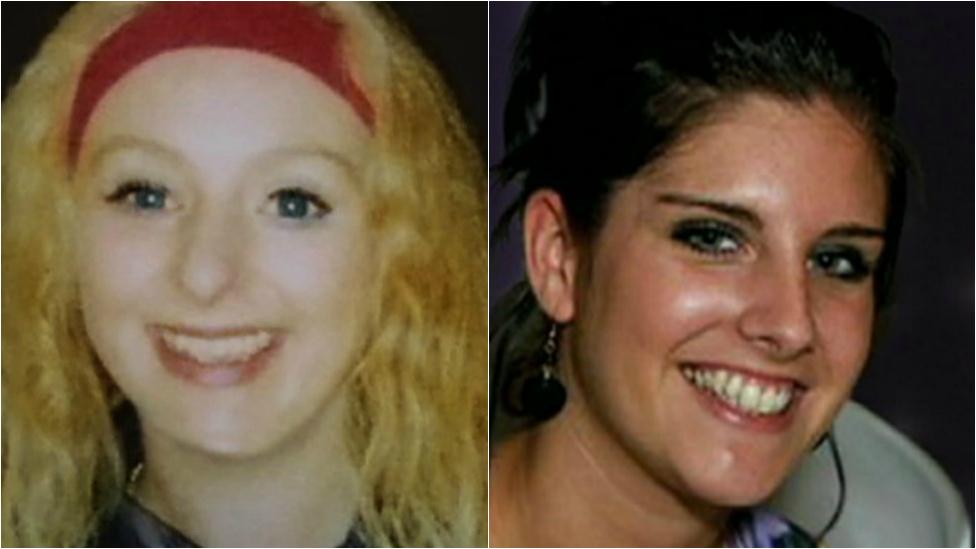
Becky Godden (l) and Sian O'Callaghan (r) were murdered by taxi driver Christopher Halliwell
Det Supt Steve Fulcher of Wiltshire Police was the investigating officer, and in an extraordinary development Halliwell told him he had also murdered Miss Godden. The confession led officers to her remains in Eastleach, Gloucestershire, two days later.
So far, so straightforward. Surely Halliwell would now face charges for both murders?
But Det Supt Fulcher, acting on instinct, had pressed Halliwell for details without cautioning him or allowing him access to a solicitor.
A High Court judge ruled this breach of police guidelines made Halliwell's confession inadmissible. And the confession was the only evidence the police had. Unless fresh evidence was found, the case against him for Miss Godden's murder, had to be dropped.
The detective had both caught - and lost - the murderer.
In 2012 Halliwell pleaded guilty to murdering Miss O'Callaghan and was sentenced to life in prison with a minimum term of 25 years.
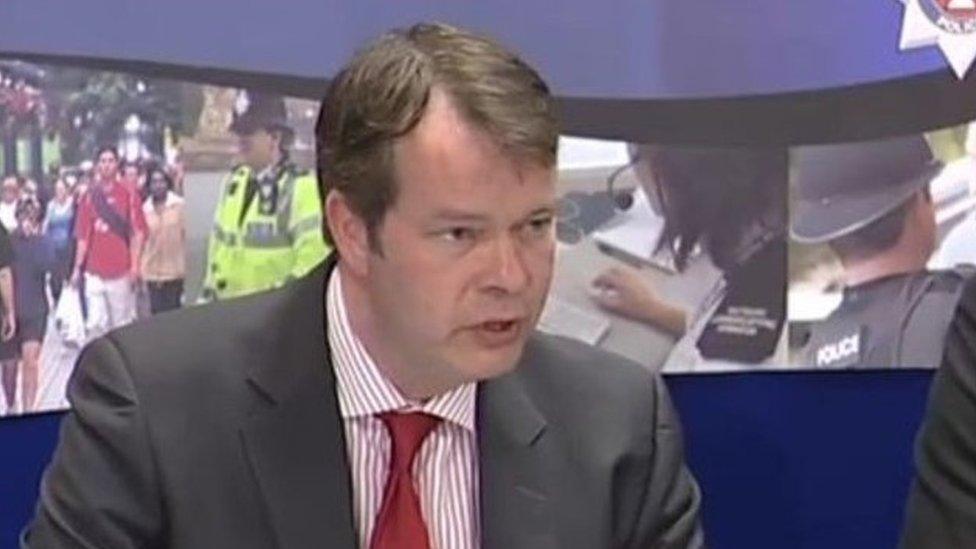
Det Insp Steve Fulcher of Wiltshire Police faced a misconduct inquiry over his methods and later resigned from the force
Meanwhile, Det Supt Fulcher's actions led to an inquiry by the Independent Police Complaints Commission.
He was allowed to keep his job but he later resigned from the force.
New evidence was painstakingly gathered in an attempt to bring Halliwell to trial for the murder of Miss Godden. A forensic soil scientist found there was "strong scientific support" that soil from a fork and pickaxe connected with the murder came from Halliwell's garden.
A witness was traced in the form of a former Swindon sex worker who recognised Halliwell as one of Miss Godden's "regulars".
GP records show Halliwell visited a doctor in January 2003 - just after Miss Godden disappeared - with a swollen hand and scratched face.
Despite the new evidence and having admitted the murder years ago, he decided to plead not guilty.
The killer represented himself at Bristol Crown Court, even cross-examining Mr Fulcher, who now works as a consultant in Somalia.
Halliwell claimed his confession was false and he had made it because he had known guidelines were being breached.
"I wanted to do everything I could to destroy [Mr Fulcher's] career," he said.
Today though, the jury rejected that argument and found him guilty.
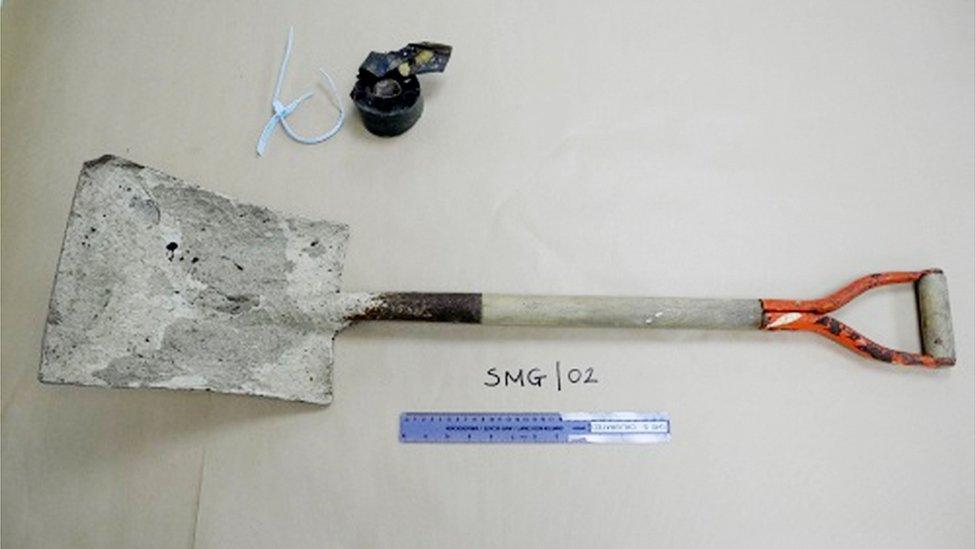
Soil on a spade found in Christopher Halliwell's shed matched that from a field where Becky Godden's remains were found
Other than the delay in convicting Halliwell, what effect has Mr Fulcher's maverick approach had?
Speaking in 2012, Mr Fulcher defended his actions, saying the conversation with Halliwell took place at a "very tense moment".
"Any intervention at that time could have broken that momentary bond and he could have changed his mind and taken another course of action," he said.
The families of the murdered women are divided.
Sian O'Callaghan's parents and boyfriend, and Becky Godden's mother, Karen Edwards, have praised his unconventional methods.
"Had Steve Fulcher followed the guidelines, then Becky would never have been found, she would have never have come into the equation and Sian would have still have been where [Halliwell] moved her to," Ms Edwards said.

CCTV of Christopher Halliwell shortly before his arrest for Sian O'Callaghan's murder
"No-one would have found Sian in a million years where they found her, where he dumped her body."
But Miss Godden's father John believes the former detective made a "massive mistake".
"I can't explain to you what they have made me feel and what they have done to me mentally," he said. "They have got off very cheaply, Wiltshire Police.
"What they have put me through, this extra pain and suffering, nobody has been made accountable for it."
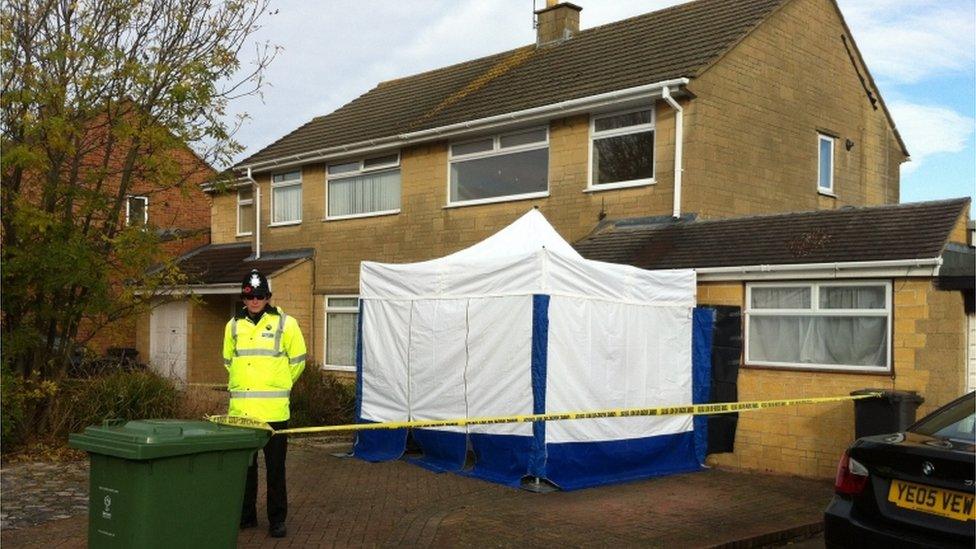
Soil found in Christopher Halliwell's home in Swindon was also found on a spade and pickaxe
Miss O'Callaghan's family has always been vocal in its support of Mr Fulcher's actions.
Her mother, Elaine Pickford, is adamant her daughter's body would not have been found so quickly - and that Miss Godden's body would never have been found - if it had not been for Mr Fulcher's unconventional approach.
She also believes the ex-policeman has saved the lives of other young women: "Who knows what Halliwell would have gone on to do?"
- Published15 May 2014
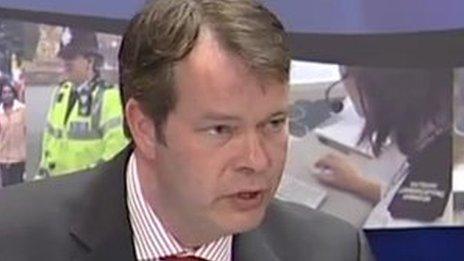
- Published23 January 2014
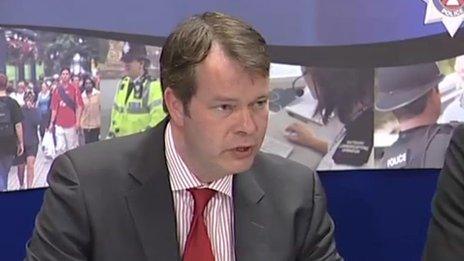
- Published22 January 2014

- Published9 September 2013
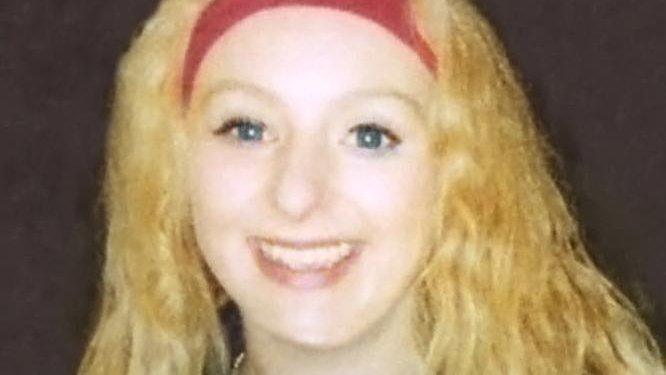
- Published9 September 2013

- Published19 October 2012
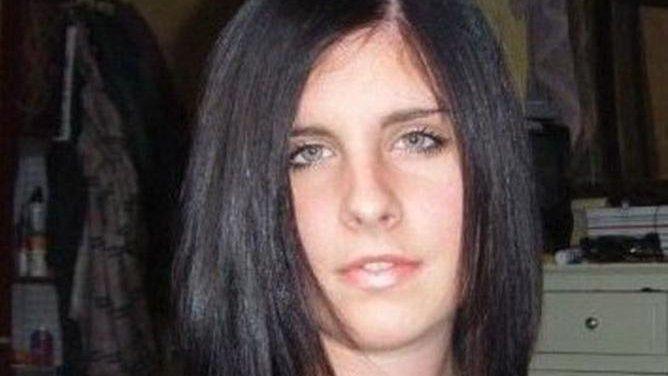
- Published14 December 2012
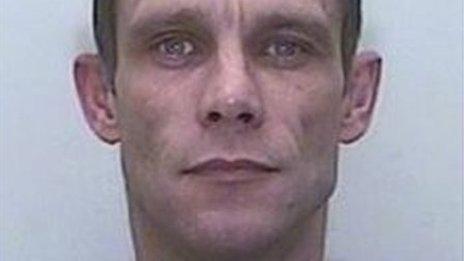
- Published22 October 2012

- Published19 October 2012
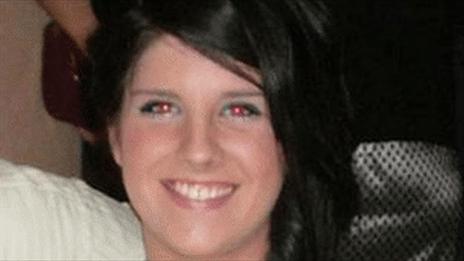
- Published19 October 2012
- Published19 October 2012
